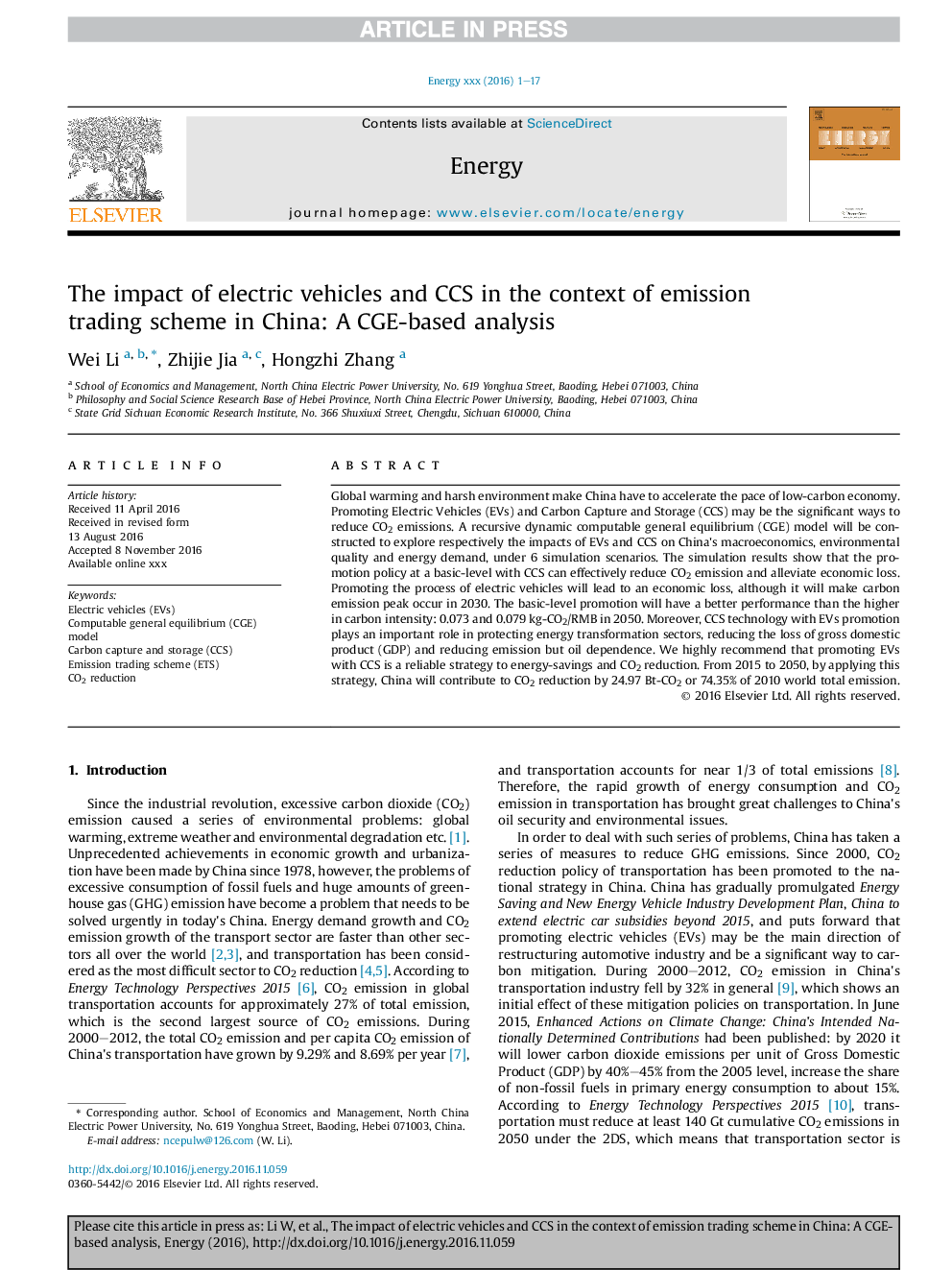| Article ID | Journal | Published Year | Pages | File Type |
|---|---|---|---|---|
| 5476923 | Energy | 2017 | 17 Pages |
Abstract
Global warming and harsh environment make China have to accelerate the pace of low-carbon economy. Promoting Electric Vehicles (EVs) and Carbon Capture and Storage (CCS) may be the significant ways to reduce CO2 emissions. A recursive dynamic computable general equilibrium (CGE) model will be constructed to explore respectively the impacts of EVs and CCS on China's macroeconomics, environmental quality and energy demand, under 6 simulation scenarios. The simulation results show that the promotion policy at a basic-level with CCS can effectively reduce CO2 emission and alleviate economic loss. Promoting the process of electric vehicles will lead to an economic loss, although it will make carbon emission peak occur in 2030. The basic-level promotion will have a better performance than the higher in carbon intensity: 0.073 and 0.079Â kg-CO2/RMB in 2050. Moreover, CCS technology with EVs promotion plays an important role in protecting energy transformation sectors, reducing the loss of gross domestic product (GDP) and reducing emission but oil dependence. We highly recommend that promoting EVs with CCS is a reliable strategy to energy-savings and CO2 reduction. From 2015 to 2050, by applying this strategy, China will contribute to CO2 reduction by 24.97 Bt-CO2 or 74.35% of 2010 world total emission.
Keywords
Related Topics
Physical Sciences and Engineering
Energy
Energy (General)
Authors
Wei Li, Zhijie Jia, Hongzhi Zhang,
